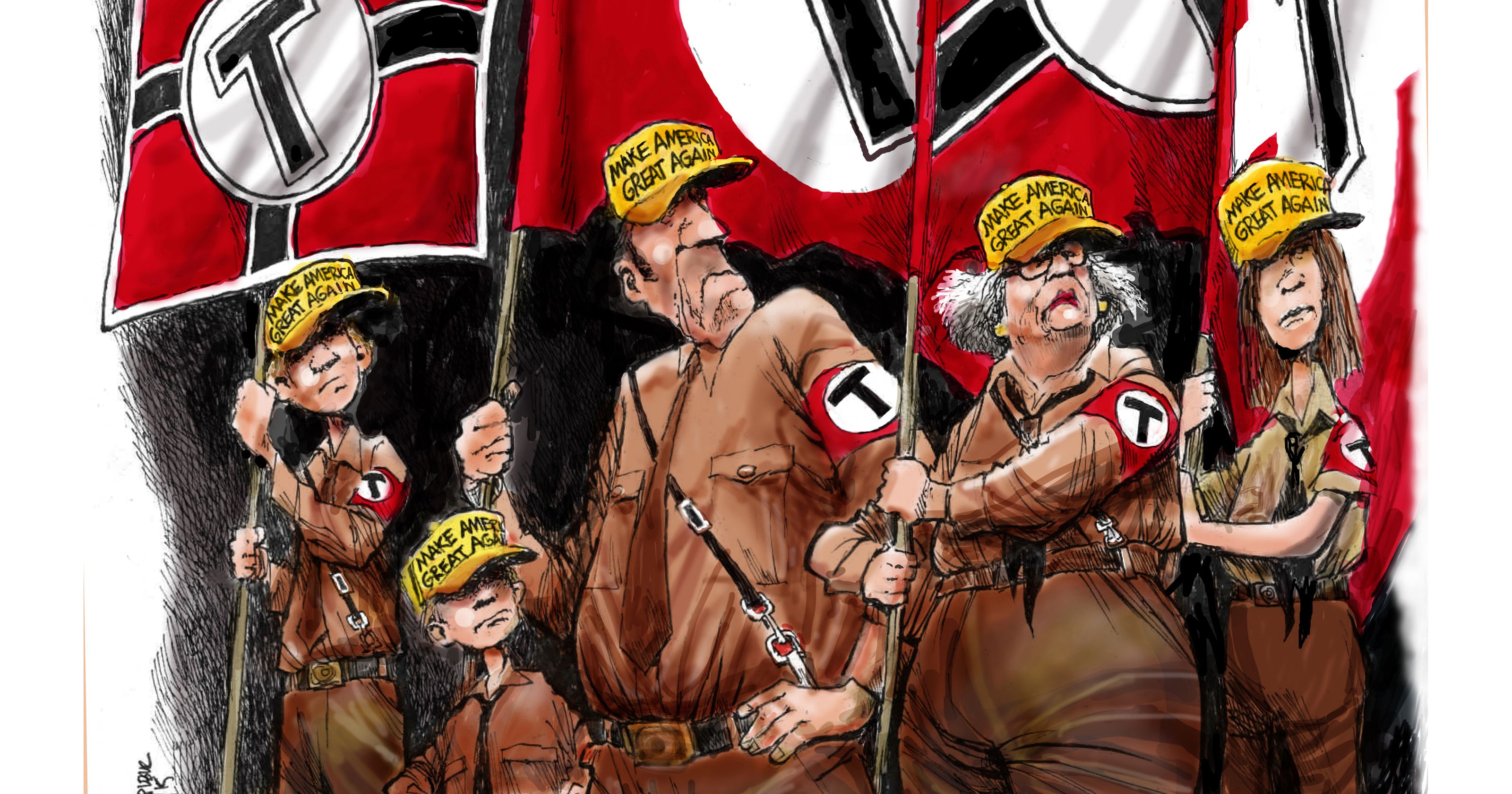Political scientist Dr. Lawrence Britt recently wrote an articleabout fascism ("Fascism Anyone?," Free Inquiry, Spring 2003,page 20). Studying the fascist regimes of Hitler (Germany),Mussolini (Italy), Franco (Spain), Suharto (Indonesia), andPinochet (Chile), Dr. Britt found they all had 14 elements in common.He calls these the identifying characteristics of fascism.The excerpt is in accordance with the magazine's policy.
The 14 characteristics are:
- Powerful and Continuing Nationalism
Fascist regimes tend to make constant use of patrioticmottos, slogans, symbols, songs,and other paraphernalia. Flags are seen everywhere, as are flagsymbols on clothing and in public displays.
- Disdain for the Recognition of Human Rights
Because of fearof enemies and the need for security, the people in fascistregimes are persuaded that human rights can be ignored incertain cases because of "need." The people tend to look theother way or even approve of torture, summary executions,assassinations, long incarcerations of prisoners, etc.
- Identification of Enemies/Scapegoats as a Unifying Cause
The people are rallied into a unifying patriotic frenzy over theneed to eliminate a perceived common threat or foe: racial ,ethnic or religious minorities; liberals; communists;socialists, terrorists, etc.
- Supremacy of the Military
Even when there are widespreaddomestic problems, the military is given a disproportionateamount of government funding, and the domestic agenda isneglected. Soldiers and military service are glamorized.
- Rampant Sexism
The governments of fascist nations tend tobe almost exclusively male-dominated. Under fascist regimes,traditional gender roles are made more rigid. Opposition toabortion is high, as is homophobia and anti-gay legislation andnational policy.
- Controlled Mass Media
Sometimes to media is directlycontrolled by the government, but in other cases, the media isindirectly controlled by government regulation, or sympatheticmedia spokespeople and executives. Censorship, especially in wartime, is very common.
- Obsession with National Security
Fear is used as amotivational tool by the government over the masses.
- Religion and Government are Intertwined
Governments infascist nations tend to use the most common religion in thenation as a tool to manipulate public opinion. Religiousrhetoric and terminology is common from government leaders, evenwhen the major tenets of the religion are diametrically opposedto the government's policies or actions.
- Corporate Power is Protected
The industrial and businessaristocracy of a fascist nation often are the ones who put thegovernment leaders into power, creating a mutually beneficialbusiness/government relationship and power elite.
- Labor Power is Suppressed
Because the organizing power oflabor is the only real threat to a fascist government, laborunions are either eliminated entirely, or are severelysuppressed .
- Disdain for Intellectuals and the Arts
Fascist nationstend to promote and tolerate open hostility to higher education,and academia. It is not uncommon for professors and otheracademics to be censored or even arrested. Free expression inthe arts is openly attacked, and governments often refuse tofund the arts.
- Obsession with Crime and Punishment
Under fascist regimes,the police are given almost limitless power to enforce laws. Thepeople are often willing to overlook police abuses and evenforego civil liberties in the name of patriotism. There is oftena national police force with virtually unlimited power infascist nations.
- Rampant Cronyism and Corruption
Fascist regimes almostalways are governed by groups of friends and associates whoappoint each other to government positions and use governmentalpower and authority to protect their friends fromaccountability. It is not uncommon in fascist regimes fornational resources and even treasures to be appropriated or evenoutright stolen by government leaders.
- Fraudulent Elections
Sometimes elections in fascistnations are a complete sham. Other times elections aremanipulated by smear campaigns against or even assassination ofopposition candidates, use of legislation to control votingnumbers or political district boundaries, and manipulation ofthe media. Fascist nations also typically use their judiciariesto manipulate or control elections.

